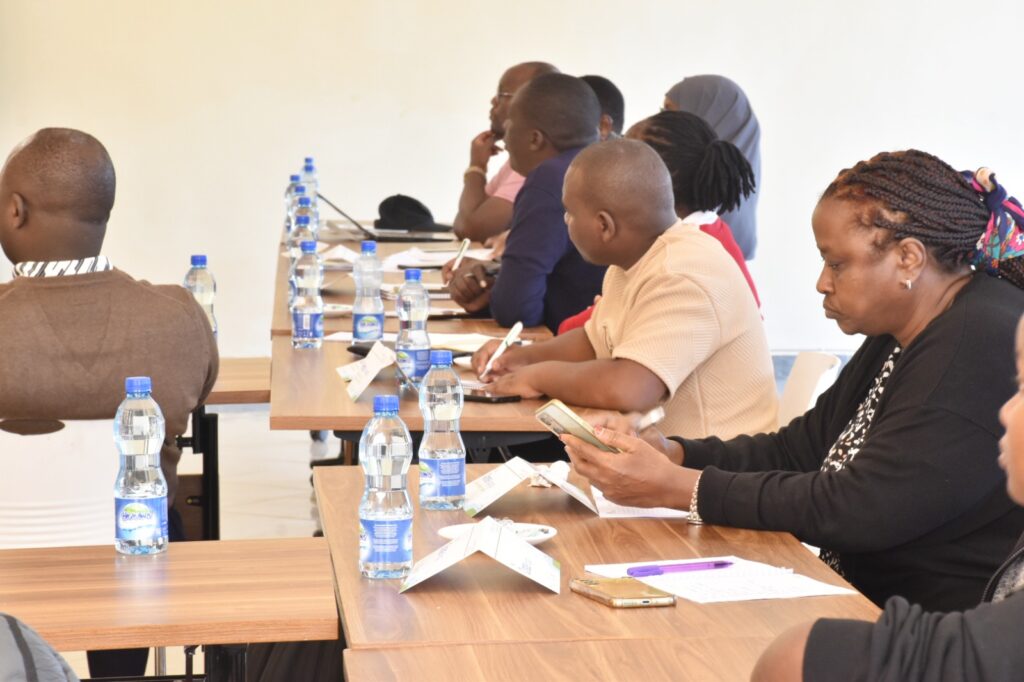
CONCEPT NOTE
INTERNATIONAL TRAINING ON KNOWLEDGE MANAGEMENT FOR EMERGENCY AND RESILIENCE PROGRAMMING
COURSE BACKGROUND
In the face of increasing humanitarian emergencies, climate shocks, and complex crises, organizations are expected to deliver timely, effective, and coordinated responses. A major enabler of such effectiveness is the ability to capture, manage, and apply knowledge from past experiences, ongoing operations, and contextual insights.
The course Knowledge Management for Emergency and Resilience Programming, developed by Environmental Capacities and Sustainability (ECAS), equips participants with the understanding and tools needed to apply knowledge management (KM) principles in humanitarian and resilience-building contexts. It outlines how systematic knowledge practices can enhance learning, coordination, innovation, and adaptability within emergency response and development programming.
COURSE OBJECTIVES OF THE TRAINING
By the end of this course, participants will be able to:
- Understand the fundamental concepts and importance of knowledge management (KM).
- Apply KM practices to improve the effectiveness of emergency and resilience programming.
- Recognize how different KM cycle pillars—creation, capture, sharing, and application—relate to emergency and resilience work.
- Identify tools and approaches that enhance learning, collaboration, and institutional memory in challenging environments.
WHAT YOU WILL LEARN
Participants will gain practical understanding and skills in:
- The core principles of knowledge management (KM) and its relevance to resilience and emergency programming.
- How KM supports evidence-based decision-making, rapid learning, and innovation in crisis settings.
- The knowledge management cycle and how each of its pillars—knowledge creation, capture, sharing, and use—can be effectively applied in field operations.
- Strategies and tools for strengthening institutional learning, adaptive management, and cross-sector collaboration.
DURATION AND PROGRAM
TARGET PARTICIPANTS
This course is designed for professionals working in humanitarian, development, and resilience-building fields who are engaged in managing programs, knowledge, data, and information. This includes programme designers and managers, monitoring and evaluation officers, information management experts, thematic advisors, and knowledge management professionals who are either working in or transitioning into the emergency and resilience sectors. It is particularly useful for those seeking to improve learning, accountability, and adaptability in their organizations.
TRAINING MODULES
| No | Module | Details | |
| 1. | Introduction to Knowledge Management |
In this opening module, participants are introduced to the foundational concepts of Knowledge Management (KM). The module clarifies the differences between knowledge, data, and information, and positions KM as a strategic enabler in emergency and resilience programming. Learners will explore the rationale for integrating KM in complex operational contexts and how it contributes to improved outcomes.
Key objectives include:
|
|
| 2. | Knowledge Management for Effective Emergency and Resilience Programming |
This module connects KM concepts to real-world emergency and resilience operations. It demonstrates how KM practices support evidence-based planning, timely decision-making, and adaptive management during crises. Learners will explore how knowledge use can reduce duplication, enhance coordination, and promote innovation.
Key objectives include;
|
|
| 3. | The Knowledge Management Cycle in Action |
This module provides an in-depth exploration of the KM cycle, focusing on practical steps and tools that support knowledge creation, capture, sharing, and application. Participants will learn how to design systems and processes that facilitate organizational learning and knowledge flow across teams and partners.
Key objectives include:
|
|
TRAINING STYLE
The modules will be taught through PowerPoint presentations, and lectures and will include a case study/field visit, breakout sessions, case studies and other interactive discussion components.
The course will also include a few guest speakers, both in person and via Zoom and other online learning platforms for overseas speakers. This provides useful real-world insights alongside the more theoretical aspects of the course.
The conference faculty shall consist of experienced decision makers, as well as practitioners and representatives from established educational and research institutions active around climate change, engineering and international development. Throughout the course, theoretical presentation of concepts will be moderated and more group discussions and plenary engagements will be optimized. PowerPoint presentations will be made by facilitators and resource persons, to highlight key concepts before embarking on group work.
GENERAL NOTES
- Training manuals and additional reference materials are provided to the participants.
- Upon successful completion of this course, participants will be issued with a certificate.
- We can also do this as a tailor-made course to meet organization-wide needs. Contact us to find out more: info@ecasiafrica.org.
- Payment should be sent to our bank account before the start of training and proof of payment sent to: info@ecasiafrica.org.
ABOUT ECAS INSTITUTE
The ECAS Institute designs and delivers independent and targeted training, research, and consulting services. Our work focusses on climate change and resilience building, carbon markets, renewable energy, nature-based solution, biodiversity conservation, agriculture and food systems, We are located in Nairobi Kenya and work across the African region. We have implemented training and research assignments in Kenya, Tanzania, Uganda, South Sudan, Somalia, Malawi, Rwanda, Congo, and South Africa. Globally, we have supported our partners from the UK, Denmark, Italy, Sweden, Germany, and USA.

